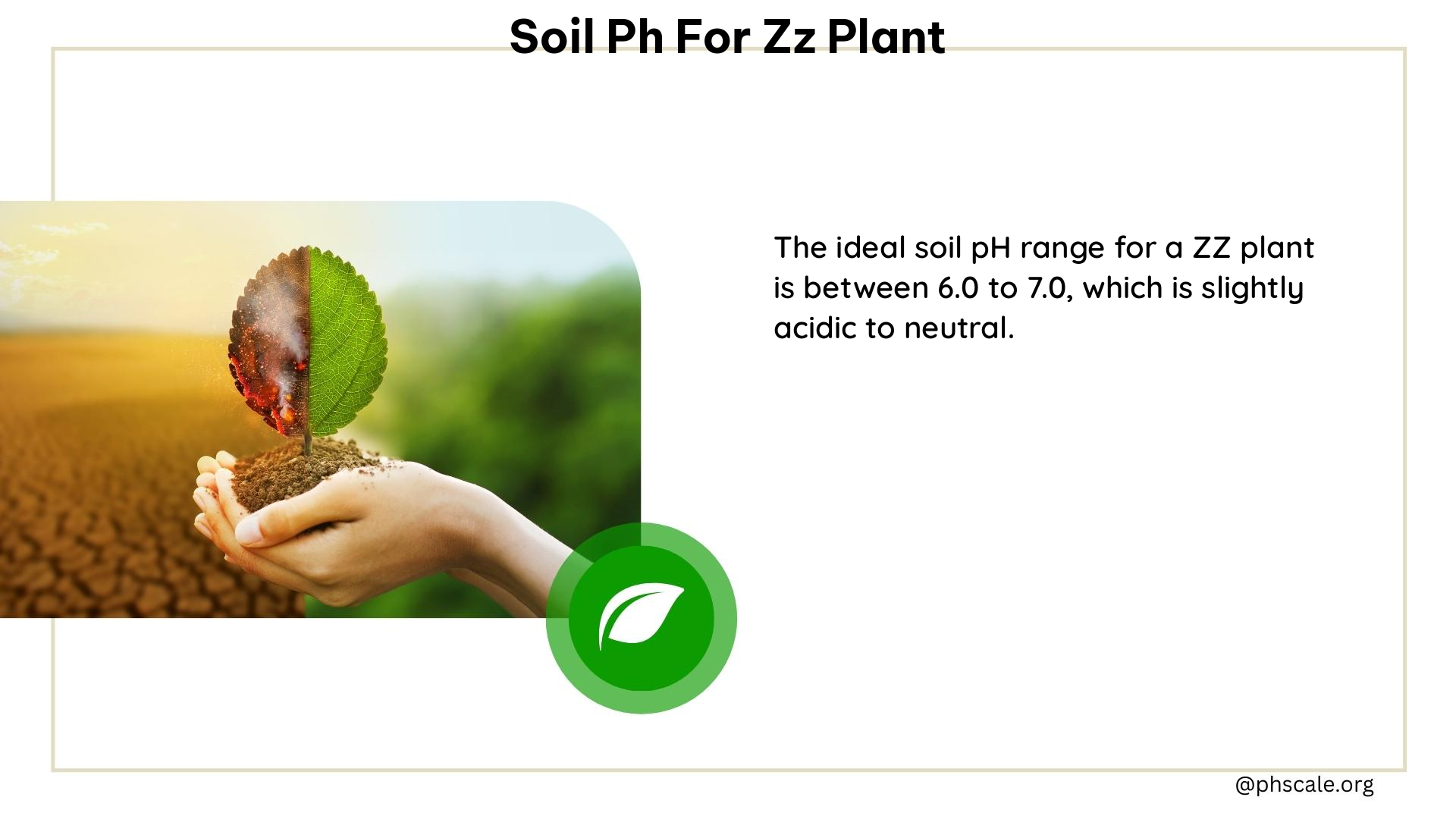The ZZ plant, also known as the Zanzibar Gem, is a popular and resilient houseplant that thrives in a specific soil pH range. Maintaining the right soil pH is crucial for the plant’s overall health and growth. In this comprehensive guide, we’ll explore the ideal soil pH for ZZ plants, the importance of soil composition, and essential care tips to ensure your ZZ plant flourishes.
Understanding the Optimal pH Range for ZZ Plants
The ideal pH range for a ZZ plant’s soil is between 6.0 and 7.0, which is slightly acidic to neutral. This specific pH range is crucial for the plant’s ability to effectively absorb essential nutrients from the soil.
Importance of Soil pH for ZZ Plants
Soil pH directly affects the availability and solubility of nutrients in the soil. When the pH is outside the optimal range, certain nutrients may become less accessible to the plant, leading to nutrient deficiencies and potential health issues.
In the case of ZZ plants, a soil pH that is too low (acidic) or too high (alkaline) can hinder the plant’s ability to absorb essential minerals such as iron, calcium, and magnesium. This can result in stunted growth, discolored leaves, and overall poor plant performance.
Achieving the Ideal Soil Composition for ZZ Plants

To maintain the optimal pH range for your ZZ plant, it’s essential to create a well-draining, nutrient-rich soil mix. Here are the key components to consider:
Organic and Inorganic Soil Additives
- Perlite: Perlite is a lightweight, porous mineral that improves soil drainage and aeration, preventing waterlogging.
- Peat Moss: Peat moss helps retain moisture and adds organic matter to the soil, contributing to a slightly acidic pH.
- Pine Bark Fines: Pine bark fines enhance soil structure, improve drainage, and provide a source of organic matter.
Avoiding Regular Garden Soil
Regular garden soil can often retain too much moisture, which can be detrimental to the ZZ plant’s health. Instead, opt for a potting mix specifically designed for indoor plants or a blend of cactus and succulent soil.
Fertilizing and Maintaining Soil pH for ZZ Plants
Proper fertilization and pH monitoring are crucial for the long-term health of your ZZ plant.
Fertilizer Recommendations
Fertilize your ZZ plant sparingly, using a diluted, balanced fertilizer at half-strength. Overfertilization can lead to fertilizer burn and other issues. Apply the fertilizer during the growing season, typically spring and summer, and avoid fertilizing during the dormant winter months.
Monitoring and Adjusting Soil pH
Regularly test the soil pH to ensure it remains within the optimal 6.0-7.0 range. If the pH is too low (acidic), you can add a small amount of lime to raise it. Conversely, if the pH is too high (alkaline), you can incorporate sulfur or peat moss to lower it.
Optimal Environmental Conditions for ZZ Plants
In addition to maintaining the correct soil pH, providing the right environmental conditions is crucial for the overall health and growth of your ZZ plant.
Humidity and Temperature
Aim to maintain a humidity level of 40-50% and a temperature range of 65°F-85°F (18°C-30°C) for optimal ZZ plant growth.
Pruning and Propagation
Regularly prune your ZZ plant to maintain its shape and remove any dead or damaged leaves. Propagation can be done by dividing the rhizomes, ensuring each section has healthy roots.
Common Issues and Troubleshooting
While ZZ plants are generally low-maintenance, they can still face some common challenges related to soil pH and other environmental factors.
Overwatering and Underwatering
Overwatering and underwatering are two of the most common issues with ZZ plants. Adjust your watering frequency based on the plant’s response, and consider repotting if necessary.
Pests and Diseases
ZZ plants can be susceptible to pests like mealybugs, fungus gnats, and aphids. Keep the plant dust-free and use horticultural oil to prevent and treat infestations.
By understanding the ideal soil pH range, creating the right soil mix, and providing the appropriate environmental conditions, you can ensure your ZZ plant thrives and brings its unique beauty to your indoor space.
References:
– Planet Natural: ZZ Plant
– The Spruce: ZZ Plant Profile
– Greg.app: ZZ Plant Soil
– Soltech: ZZ Plant Care
– Lively Root: How to Repot a ZZ Plant
